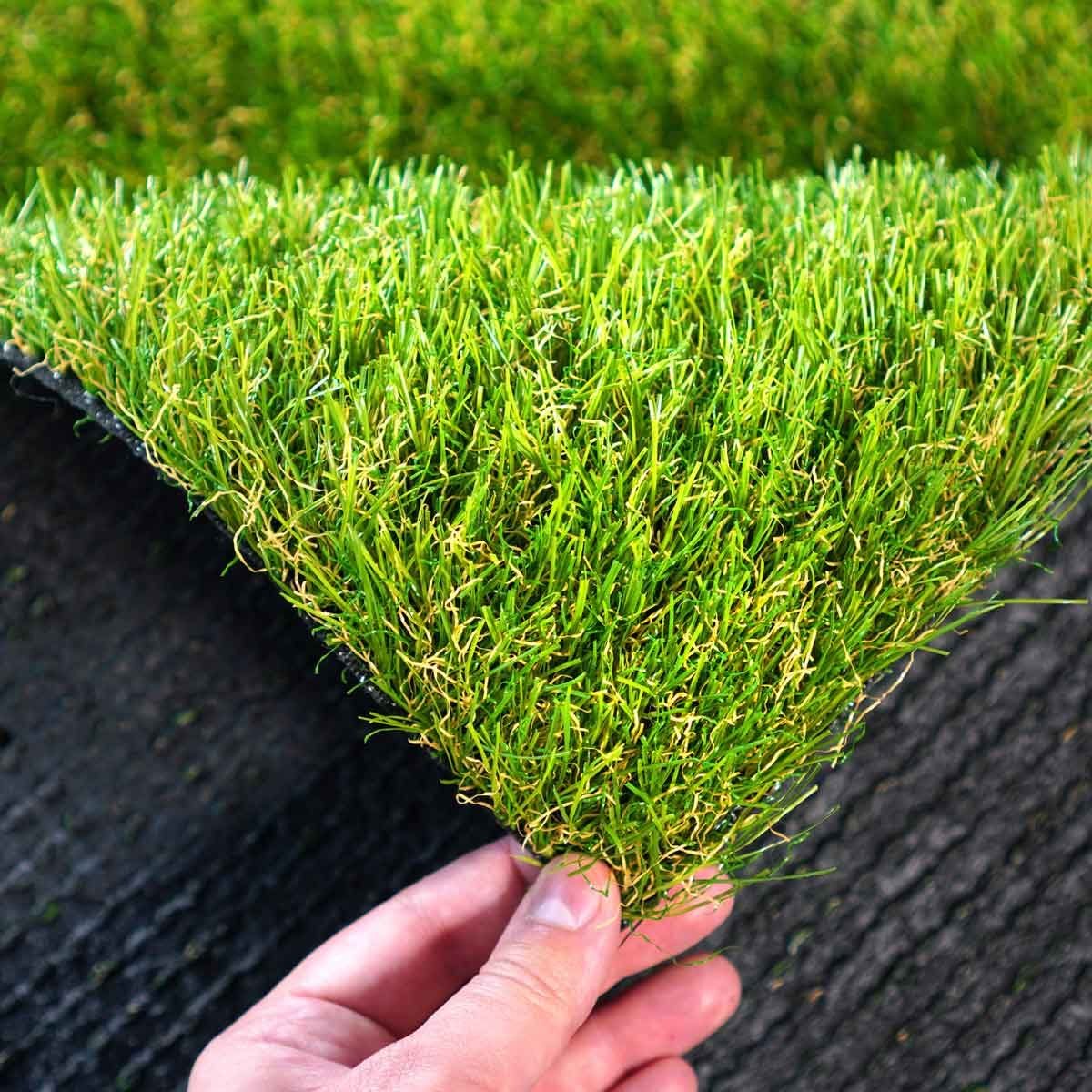Professional Arizona Turf Installation Services for Home and Business Use
Wiki Article
Explore the Environmental Advantages of Opting for Synthetic Grass Solutions
The fostering of fabricated turf services offers an engaging possibility to resolve pressing ecological difficulties. By dramatically lowering water use and lessening the application of harmful chemicals, these options not just advertise sustainable landscaping yet also protect regional ecosystems.Water Conservation Conveniences
One of the most significant advantages of man-made grass is its ability to preserve water. In comparison, synthetic lawn does not require watering, significantly decreasing the overall need for water resources.By eliminating the demand for regular watering, synthetic grass contributes to sustainable landscape techniques and helps reduce the environmental influence of too much water intake. The conservation of water expands to the decrease of overflow, which can lead to dirt erosion and waterway pollution.
In addition, the installation of synthetic grass allows property owners and towns to allocate water resources extra successfully, concentrating on vital uses such as drinking water and agriculture. The change in the direction of artificial grass not only advertises liable water use but also straightens with broader ecological objectives targeted at protecting natural deposits.
As areas increasingly focus on sustainability, the water preservation benefits of artificial grass provide a compelling instance for its adoption in household and industrial landscape design tasks.
Minimized Chemical Use
The change to synthetic lawn dramatically lowers the reliance on chemical treatments generally made use of in natural yard upkeep. Typical grass administration normally includes the application of chemicals, fertilizers, and herbicides to advertise development and control parasites. These chemicals can present threats to human health and wellness, local wildlife, and the environment, adding to dirt and water contamination.In comparison, man-made lawn eliminates the requirement for these harmful substances. By lessening the launch of artificial compounds right into the community, synthetic grass advertises much healthier dirt and water systems.
Moreover, the lack of chemical drainage associated with fabricated lawn installations helps protect neighborhood rivers from pollution, sustaining water life and maintaining biodiversity. Arizona artificial turf. As areas significantly prioritize sustainable practices, going with artificial grass presents a sensible remedy that aligns with ecological preservation goals. Through this change, home owners can delight in lush eco-friendly spaces without compromising eco-friendly health and wellness, leading the means for an extra lasting future
Reduced Carbon Footprint

In addition, the installment of synthetic grass can result in considerable water preservation. All-natural grass require significant amounts of water for watering, which not only contributes to the carbon impact connected with water extraction and treatment however additionally stress regional water resources. On the other hand, synthetic grass needs minimal dig this upkeep, calling for no watering, thereby substantially lowering water use and its linked power prices.
Furthermore, the longevity of synthetic grass adds to its reduced carbon impact. With a life expectancy of approximately 15 years or more, the requirement for frequent replacements is decreased, leading to much less waste and lower energy consumption in manufacturing and disposing of conventional lawn choices. Overall, synthetic turf presents a sustainable alternative for ecologically aware landscape design.
Habitat Preservation
Habitat conservation is a critical factor to consider in the argument over landscaping choices, specifically when contrasting synthetic grass to all-natural yard. Natural yard yards often call for considerable upkeep, consisting of using fertilizers, chemicals, and herbicides, which can adversely influence local ecological communities. These chemicals can leach right into the soil and rivers, damaging indigenous vegetation and animals and interfering with neighborhood environments.
Synthetic turf eliminates the requirement for hazardous chemicals, consequently securing neighboring wild animals and maintaining the stability of bordering ecological communities. special info The installment of artificial lawn can lead to the conversion of previous yard locations right into even more biodiverse landscapes, such as pollinator yards or native plant areas, which can sustain neighborhood wild animals.
Ultimately, the shift to man-made grass not only conserves water and minimizes upkeep efforts however also promotes a much more harmonious relationship in between human activities and the natural setting, advertising environment preservation while doing so.
Long-Term Sustainability
Long-term sustainability is a crucial consider assessing the advantages of synthetic grass over conventional yard lawns. One of the most considerable benefits of synthetic grass is its toughness; it can last up to 15-20 years with marginal upkeep, whereas natural grass needs frequent reseeding and substitute. This durability lowers the requirement for constant resources, such as water, plant foods, and pesticides, which are crucial for maintaining a healthy turf lawn.Additionally, synthetic grass contributes to a decrease in carbon emissions connected with lawn care tools. Conventional yards frequently require gas-powered lawn mowers, trimmers, and blowers, every one of which add to air pollution. Arizona artificial turf. In contrast, synthetic grass gets rid of the demand for such equipment, promoting a cleaner setting
Moreover, the manufacturing of synthetic grass increasingly makes use of recycled products, boosting its sustainability profile. As suppliers adopt green practices, the environmental footprint of synthetic grass remains to decrease.

Verdict
The fostering of synthetic grass services provides considerable environmental advantages, including considerable water preservation, minimized dependence on harmful chemicals, and a reduced carbon impact. Furthermore, synthetic turf aids in maintaining all-natural habitats by reducing land disturbance and promoting lasting sustainability via making use of long lasting products. Collectively, these Turf installation phoenix az elements highlight the capacity of synthetic grass to add favorably to environmental health and wellness and provide a practical alternative to typical landscape design techniques in a significantly resource-conscious world.In contrast, man-made turf does not need watering, substantially lowering the total demand for water sources. By lessening the release of synthetic substances into the community, fabricated lawn advertises healthier soil and water systems.
Additionally, the installation of synthetic turf can result in substantial water preservation. In comparison, man-made turf needs minimal upkeep, requiring no watering, thus considerably lowering water usage and its connected energy prices.

Report this wiki page